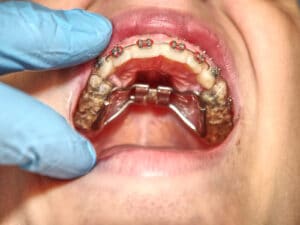Key Things to Know Before Jaw Surgery for a Smooth Recovery
Thinking about jaw surgery can bring a mix of emotions. There’s the hope of improved function and appearance, but also questions about what lies ahead. It’s a significant procedure that calls for clear information and realistic expectations. This guide will walk you through the important things to know before jaw surgery, from preparation steps to recovery insights. You’ll learn what to expect, how to get organized, and the factors that can help you feel more confident going into the process.
Before and After Double Jaw Surgery – What to Expect

Understanding what happens before and after double jaw surgery helps you prepare for the changes ahead. Before the procedure, you’ll have a series of consultations, imaging, and possibly orthodontic treatment to set your teeth in the right position. Your surgeon will explain the plan and answer your questions so you know exactly how it will proceed.
After surgery, you can expect swelling, changes in your bite, and a period of limited jaw movement. Healing takes time, and your diet will be restricted at first. Most patients notice gradual improvements in comfort and function over the following weeks and months.
It’s also common to see differences in facial structure once healing is complete. This can boost confidence, but it’s important to remember that final results take time to appear. Patience and consistent follow-up care are key parts of the process.
Jaw Surgery Patient Guide – Understanding the Process
The process starts with an initial evaluation. Your orthodontist and oral surgeon will assess your bite, jaw alignment, and overall oral health. Digital imaging and 3D models are often used to create a clear treatment plan.
Once the plan is set, you may need orthodontic treatment before surgery. This helps position your teeth so the results are stable and functional. Your care team will also review instructions for the days leading up to the procedure.
One of the most important things to know before jaw surgery is that recovery is gradual. Planning for time off work or school, arranging help at home, and following dietary guidelines will make the experience smoother.
Orthognathic Surgery Tips to Prepare Like a Pro
Good preparation can make a difference in how you experience surgery and recovery. Here are some practical steps to consider before your procedure:
- Stock your kitchen with soft foods and nutritious liquids.
- Arrange transportation to and from the hospital or surgical center.
- Prepare a comfortable recovery area at home with extra pillows for support.
- Have cold packs on hand to help reduce swelling.
- Follow your surgeon’s instructions for any pre-surgery medication or hygiene routines.
- Take care of important errands before surgery so you can focus on healing.
- Keep a small notebook or phone app to track questions for your care team.
These are some of the most useful things to know before jaw surgery. Being organized ahead of time can make the first weeks after the procedure much easier to manage.
Double Jaw Surgery Recovery Timeline & Checklist
Recovery from double jaw surgery happens in stages. Knowing what to expect can help you plan and adjust as you go.
Recovery Timeline:
- Week 1: Swelling is at its peak. Pain and discomfort are managed with prescribed medication. Diet is limited to liquids.
- Weeks 2–4: Swelling starts to go down. Soft foods may be added if approved by your surgeon. Jaw movement remains limited.
- Months 2–6: Most swelling subsides. Normal chewing gradually returns. Ongoing orthodontic adjustments may continue.
- 6 Months and Beyond: Full recovery is reached. Final results in function and appearance are visible.
Double Jaw Surgery Checklist:
- Prescribed medications
- Ice packs or cold compresses
- Blender or food processor for meal prep
- Soft-bristled toothbrush
- Comfortable seating and extra pillows
- Follow-up appointment schedule
Understanding the double jaw surgery recovery timeline is one of the most important things to know before jaw surgery. It helps set realistic expectations and keeps you focused on steady progress.
Frequently Asked Questions About Double Jaw Surgery
1. How long does double jaw surgery take?
Most procedures last between three and six hours, depending on the complexity of your case. Your surgeon will provide a time estimate during your pre-surgery consultation.
2. Will I need to stay in the hospital?
An overnight stay is typical, so your care team can monitor your recovery. Some patients may stay an extra day if additional observation is needed.
3. Is double jaw surgery painful?
You’ll be under anesthesia during the procedure. After surgery, discomfort is managed with prescribed medications. Most patients find the first week uncomfortable but tolerable.
4. Can I talk after the surgery?
Speech will be limited at first due to swelling and jaw restrictions. Many patients use a notepad or phone app for communication during the early recovery days.
5. How much time should I take off from work or school?
Most people take two to four weeks off, though those with physically demanding jobs may need more time.
6. Will I have visible scars?
In most cases, incisions are made inside the mouth, so there are no visible external scars.
7. How soon can I return to normal activities?
Light activities may resume within two weeks. Strenuous exercise or contact sports should be avoided for six to eight weeks or until your surgeon approves.
8. Do I need orthodontic treatment after surgery?
Yes, most patients continue orthodontic treatment after surgery to fine-tune bite alignment and ensure lasting results.
9. How much does double jaw surgery cost?
Costs vary based on the complexity of the case, location, and insurance coverage. Your provider can give you a detailed estimate after a consultation.
10. What can I eat once my jaw starts healing?
You’ll begin with a liquid diet, progress to soft foods, and slowly reintroduce solid foods as healing allows. Your surgeon will guide each step based on your recovery progress.
Learn More About Dr. Bob Bryan Orthodontics
For over 50 years, Dr. Bob Bryan Orthodontics has been creating confident, healthy smiles for patients in Allentown and Hamburg, PA. Our experienced team works with children, teens, and adults, providing personalized orthodontic care in a friendly, comfortable environment. We use advanced technology, including Invisalign®, digital scans, and 3D imaging, to ensure effective treatment and lasting results.
Take the next step toward your healthiest smile.
Schedule your consultation with Dr. Bob Bryan Orthodontics today and experience the difference expert care can make.






